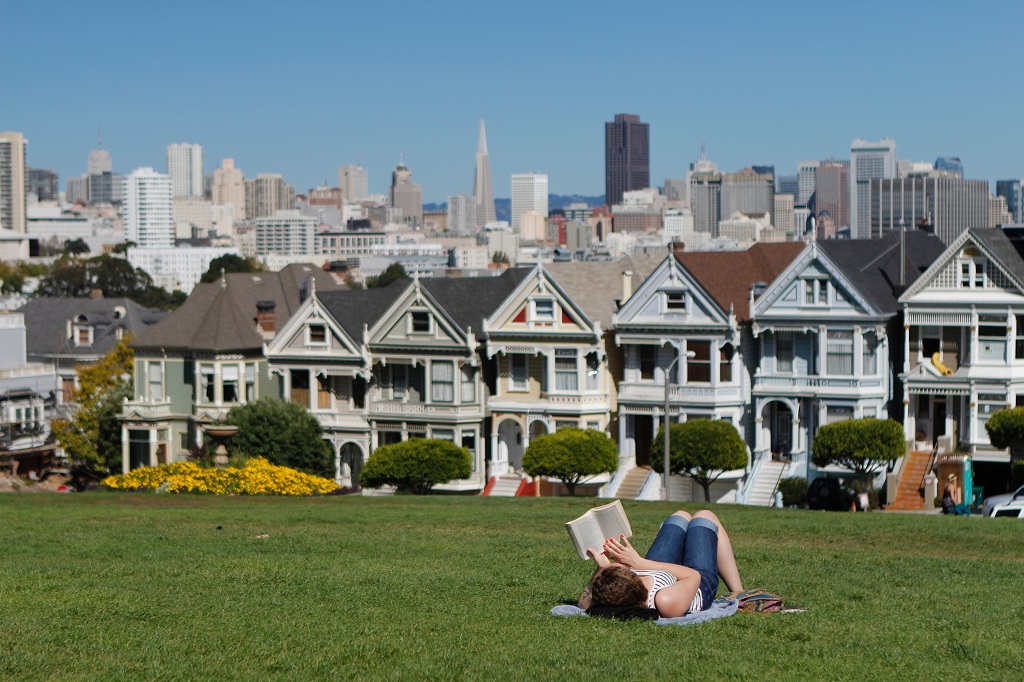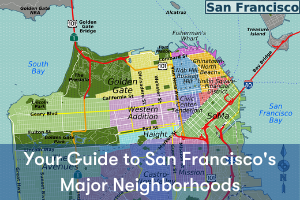City Guides
|
Apr 30, 2019
The Best and Worst Parts of Living in San Francisco
Thinking about moving to San Francisco? As with any major city, living in the City by the Bay has its pros and cons. In addition to the usual challenges of urban life, San Francisco has issues all its own to take into account, notably a homelessness crisis, headline-grabbing housing costs and unique weather patterns. No city is perfect, of course, so it’s your job to determine if the positives outweigh the negatives.
Let’s examine some pros and cons of life in San Francisco and help you decide if you want to make your California dreams a reality.
Pro: Opportunity
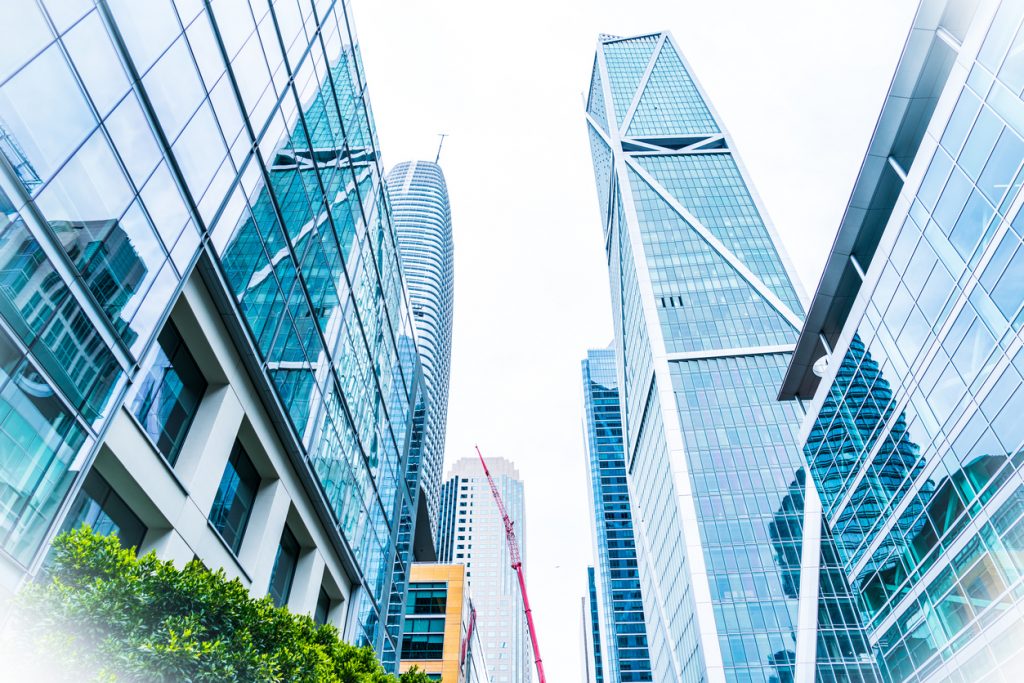
If you or your partner works in tech, the San Francisco Bay Area is undoubtedly the place to be. From brand new startups to industry stalwarts like Apple, Google, Facebook, Twitter and Salesforce, the innovative city attracts world-class business, capital and talent from all over the world.
Try out San Francisco by renting a month-to-month furnished apartment.
Since the peak of the dot-com boom in the early 2000s, the tech sector has added 66,000 jobs to San Francisco’s economy. The city also leads the United States in wage growth. You’ll need those wages, however, because…
Con: Sky-High Housing Costs
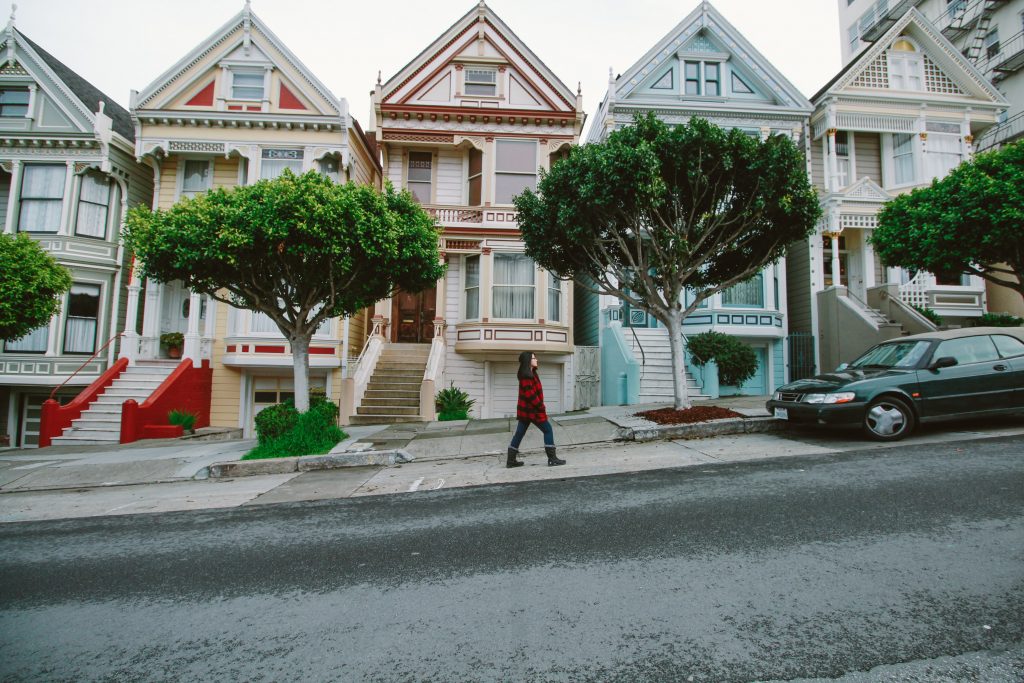
When considering moving to the Bay Area, it’s hard to avoid finding out that it’s one of the most expensive areas in the world to live. San Francisco has a staggering average monthly rent of over $3,600. If you’re considering buying a home there, start saving now, because the median home value is more than $1.3M. This high cost of living is heavily tied to demand outpacing supply, especially with strict zoning laws preventing “Manhattanization” – construction of tall, high-density housing. Living with roommates and choosing your neighborhood wisely will help, but expect to spend a hefty chunk of your income on keeping a roof over your head.
Pro: Very Dog-Friendly
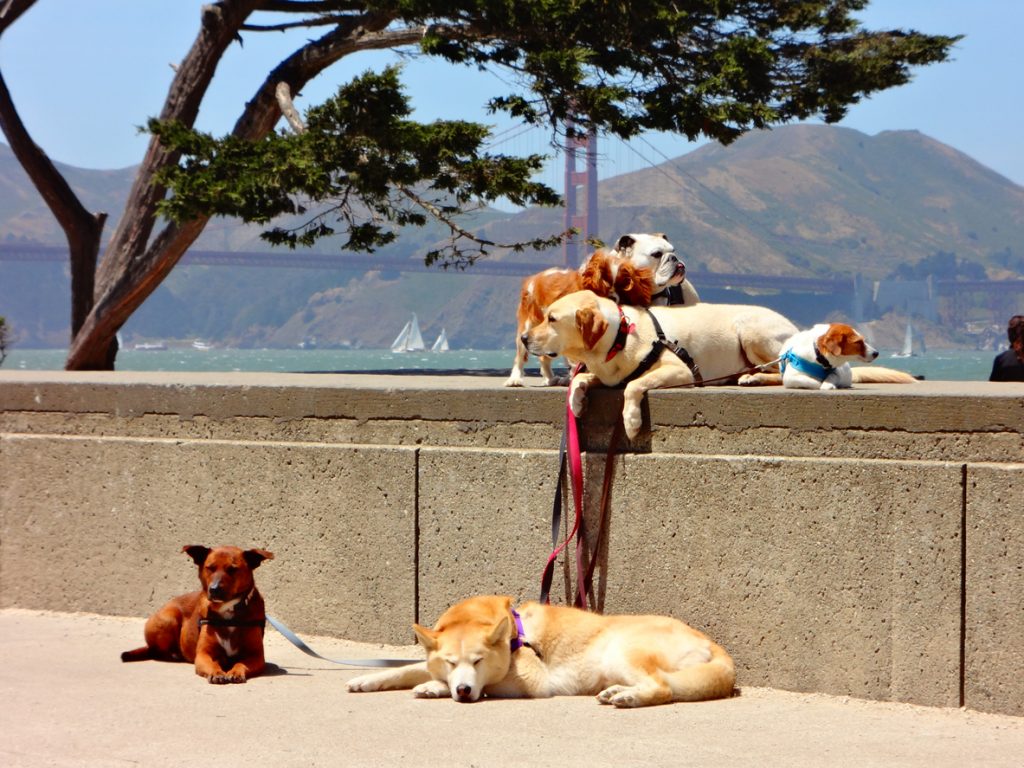
Spend time in San Francisco and you’ll quickly wonder if you’re in a city meant for humans or canines. In 2016, it was ranked the most dog-friendly city in the United States. From dog parks to dog hotels, accommodations and facilities for your furry friend are everywhere. But on the flip side…
Con: Not So Kid-Friendly

Although the tech boom has drawn hordes of young adults between the ages of 20 and 39 to San Francisco, most of them aren’t raising families in the city. As a 2017 New York Times piece titled “San Francisco Asks: Where Have All the Children Gone?” put it:
There is one statistic that the city’s natives have heard too many times. San Francisco, population 865,000, has roughly the same number of dogs as children: 120,000. In many areas of the city, pet grooming shops seem more common than schools.
The city’s insane housing costs are largely to blame, but there are other factors as well: an unreliable public school system, the attractiveness of nearby suburbs and the high number of childless LGBTQ+ men and women.
Pro: Diversity and Progressive Values
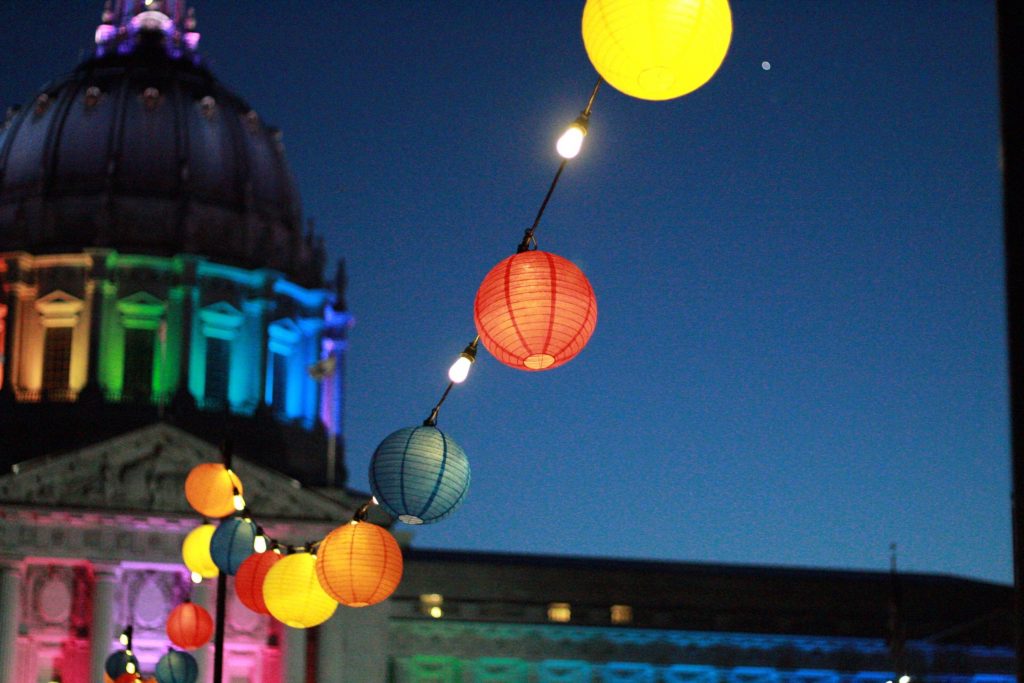
A minority-majority city, San Francisco boasts an ethnically diverse population. Many Hispanic groups live in the Mission District, where the city’s rich Hispanic culture and history are still felt. Chinese-Americans also have a deep history in the city, with San Francisco’s Chinatown being the oldest and one of the largest in North America.
If you’re a member or ally of the LGBTQ+ community, you’ll feel right at home in San Francisco. The community is loud and proud, especially in neighborhoods like the Castro, one of the most well-known gay neighborhoods in the world. Every June, over a million locals and tourists attend San Francisco Pride, one of the largest and oldest pride parades and the originator of the rainbow flag.
Your inner free spirit will be pleased to know that SF was also the birthplace of the mid-1960s “hippie” counterculture movement, notably at the intersection of Haight and Ashbury streets. To this day San Francisco holds highly progressive values both in its culture and government, evident through the embrace of same-sex marriage, high minimum wages, anti-war activism, pro-choice policies, marijuana decriminalization and free migration.
Con: Homelessness
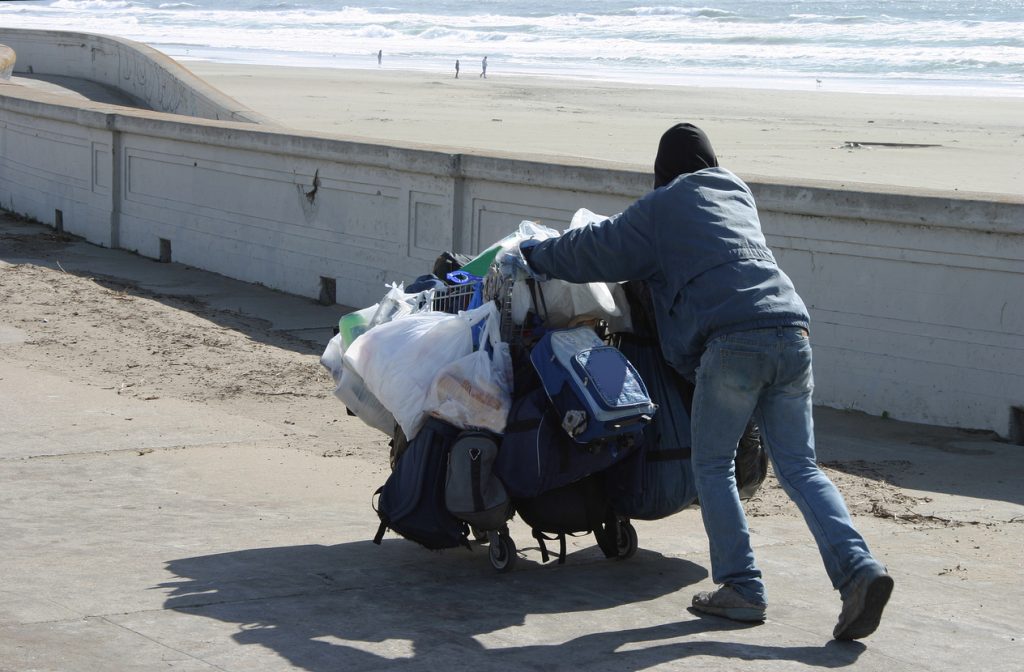
San Francisco doesn’t have more homeless people than other major cities in the U.S. However, the mild weather, lack of square footage and large number of unsheltered homeless, among other factors, have led the problem to run rampant.
San Francisco’s homeless problem is also more visible than it is in other cities. The Tenderloin, the city’s poorest neighborhood, lies adjacent to its wealthy commercial center, South of Market (SoMa), so it’s not unusual to see homeless scattered among high-rise office buildings and luxury apartments. San Francisco also has a higher rate of chronic homelessness, meaning there are more individuals who are long-term street dwellers rather than temporarily down and out. Homeless encampments on the streets and sidewalks, full of tents and sleeping people, are a common sight.
Pro: Transportation Options
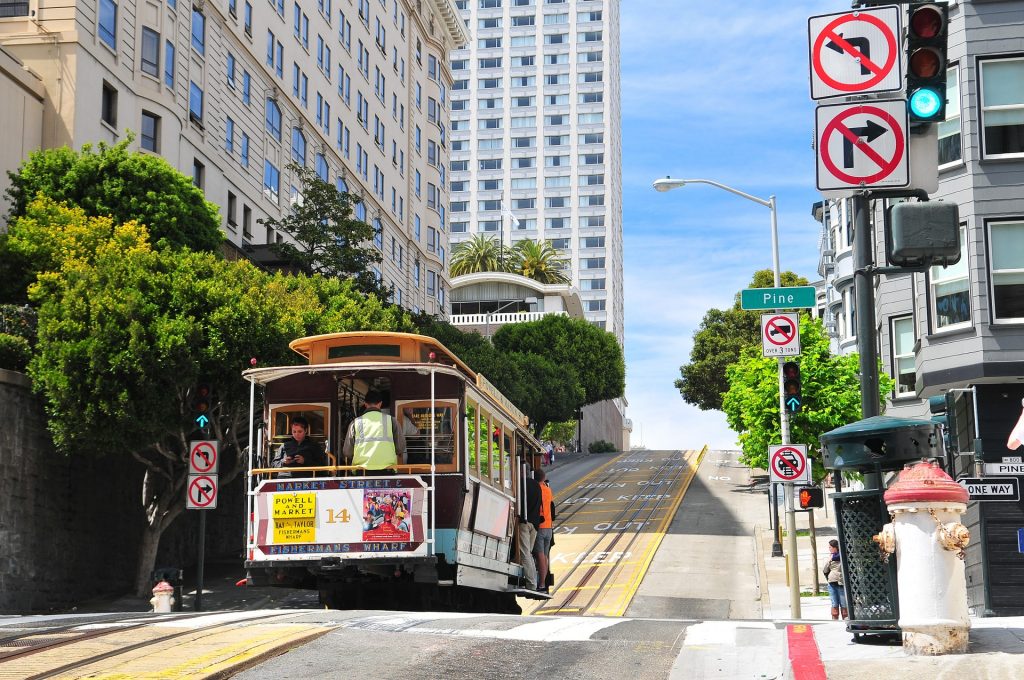
From public transportation options like Muni and BART to vintage streetcars and cable cars, there’s no shortage of ways to get around San Francisco and the greater Bay Area. Rideshares via Uber and Lyft – both born and headquartered in the city – are also abundant and affordable.
Prefer two wheels over four? San Francisco has invested heavily in its bike lanes and is one of the most bike and scooter-friendly places in the world. If you don’t have wheels of your own, rent a Ford GoBike or JUMP electric bike, or an electric scooter from Bird, Lime, Spin or the SFMTA’s public scooter share program.
For more on SF’s transportation options, see our blog on Getting Around San Francisco.
Con: Traffic and High Gas Prices
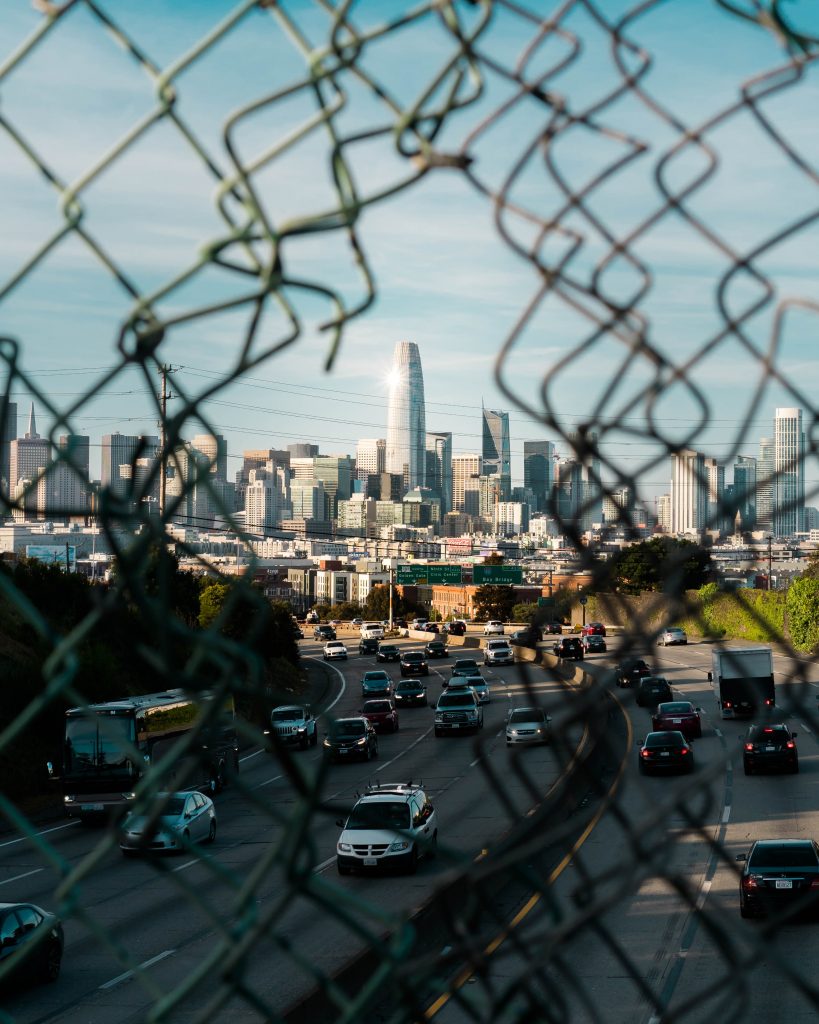
If you plan on having a car in San Francisco and using it to travel throughout the Bay Area, you’re likely to spend a lot of time stuck in traffic. According to the INRIX Global Traffic Scorecard, San Francisco had the fifth worst traffic congestion in the world and the third worst in the U.S. in 2017, with drivers spending an average of 79 hours in traffic.
That time spent idling in your car will cost you, as gas prices in San Francisco tend to be higher than those in other cities. According to gasbuddy.com, in April 2019 the lowest gas price was $3.89/gallon, $1 more than the national average of $2.89/gallon.
Pro: Outdoor Activities
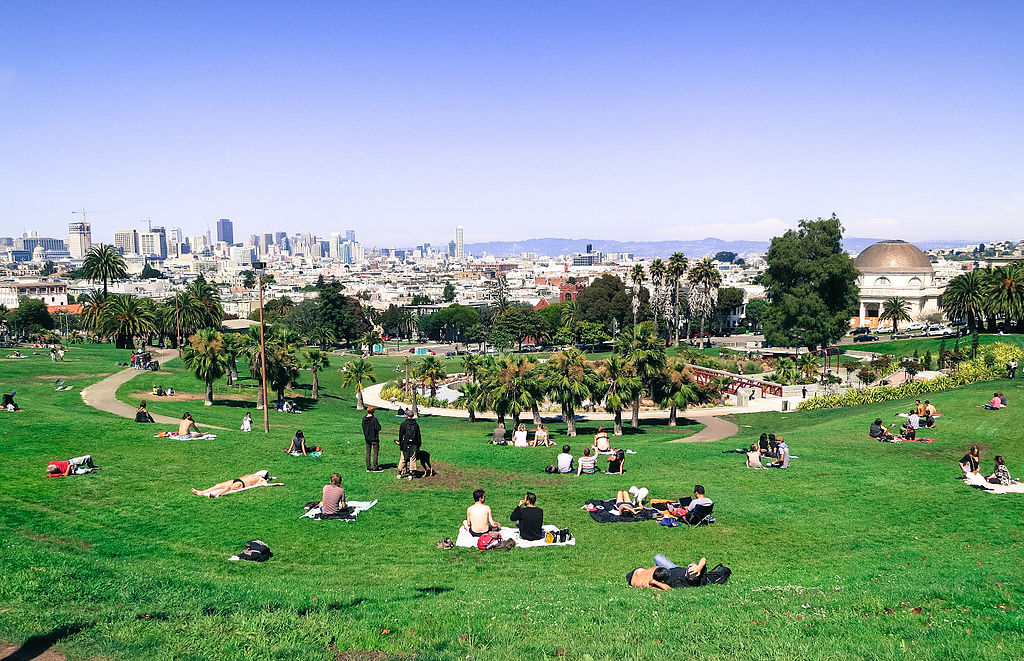
When you’re not spending time at your tech job or in your tiny, overpriced apartment, there’s so much to do outdoors in and around San Francisco. Bike or hike the Marin Headlands, walk the Golden Gate Bridge, catch a Giants baseball game, fly kites at Crissy Field, bring a picnic to Dolores Park, play Frisbee in Golden Gate Park, kayak the Bay or jog along the Embarcadero. If you’re a dog owner, you’ll find dog parks all over the city and even dog beaches.
Pro or Con: The Weather

San Francisco has a climate unlike that of any other major city. Whether it’s a pro or con depends on what you consider “good” and “bad” weather.
First, it gets chillier than you may expect, any time of year. Mark Twain is often quoted as saying “The coldest winter I ever saw was the summer I spent in San Francisco,” and although there’s no proof of him ever saying it, it’s an accurate statement. In addition to the wide-ranging temperatures, microclimates create weather differentials within the city and cold, strong winds are common. Some are bothered by the weather’s unpredictable patterns, but others enjoy the overall mild climate without any snow or blazing hot days.
There’s also, of course, the fog. They don’t call it “Fog City” for nothing. It tends to blanket the west side of the city most heavily, to the point where Divisadero Street is often called the “fog line.” Some like the fog, however, thinking it gives the city character.
Living in San Francisco may have its pros and cons, but despite its drawbacks, it’s not a bad place to leave your heart.
More on San Francisco
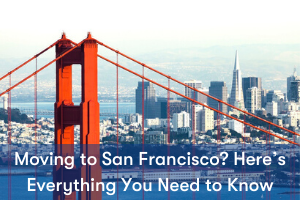


Furnished Quarters is the premier supplier of short-term housing and an accredited LGBTQ+ diverse, privately owned and operated company.
© 2025 Furnished Quarters, LLC. All Rights Reserved.
